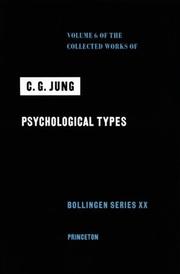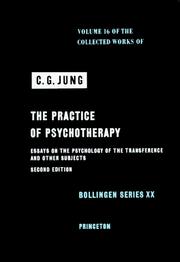| Listing 1 - 5 of 5 |
Sort by
|
Book
Year: 1960 Publisher: New York (N.Y.): Praeger,
Abstract | Keywords | Export | Availability | Bookmark
 Loading...
Loading...Choose an application
- Reference Manager
- EndNote
- RefWorks (Direct export to RefWorks)
Book
ISBN: 0805805494 9780805805499 Year: 1991 Publisher: Hillsdale Erlbaum
Abstract | Keywords | Export | Availability | Bookmark
 Loading...
Loading...Choose an application
- Reference Manager
- EndNote
- RefWorks (Direct export to RefWorks)
Self-esteem --- Self-evaluation --- Social psychology --- Psychology --- Estime de soi --- Auto-évaluation --- Psychologie sociale --- Psychologie --- Social aspects --- Aspect social --- Psychology, Social. --- Self-Assessment. --- Mass psychology --- Psychology, Social --- Human ecology --- Social groups --- Sociology --- Self-appraisal --- Self-estimate --- Self-rating --- Self-report --- Evaluation --- Self-perception --- Social comparison --- Self-love (Psychology) --- Self-respect --- Self-worth --- Respect for persons --- Narcissistic injuries --- Social Psychology --- Psychologies, Social --- Social Psychologies --- Auto-évaluation --- Self-Assessment --- Assessment, Self --- Self-Criticism --- Self Assessment --- Self Assessment (Psychology) --- Assessment, Self (Psychology) --- Assessments, Self --- Assessments, Self (Psychology) --- Self Assessments --- Self Assessments (Psychology) --- Self Criticism --- Self-Assessments --- Self-Criticisms --- Metacognition --- Psychology, Perceptual --- Perceptual Psychology
Book
ISBN: 0520025741 9780520025745 Year: 1974 Publisher: Berkeley University of California press
Abstract | Keywords | Export | Availability | Bookmark
 Loading...
Loading...Choose an application
- Reference Manager
- EndNote
- RefWorks (Direct export to RefWorks)
Communist self-criticism --- Autocritique communiste --- Liu, Shao-ch'i, --- China --- Chine --- History --- Histoire --- Liu, Shaoqi, --- S05/0228 --- S06/0422 --- S06/0262 --- 316.334.3 --- #SML: Joseph Spae --- Bolshevist self-criticism --- Criticism, Communist --- Self-criticism, Communist --- Self-examination --- Discussion --- China: Biographies and memoirs--Other political leaders --- China: Politics and government--CCP: 1966 - 1976 --- China: Politics and government--Mass line, mass criticism --- Politieke sociologie --- Liu, Shao-Chi. --- Liu, Shao-chi --- 劉紹基 --- 柳紹伋 --- -Cultural Revolution, 1966-1976. --- Communist self-criticism. --- 316.334.3 Politieke sociologie --- Liu, Shaoqi --- Cina --- Kinë --- Cathay --- Chinese National Government --- Chung-kuo kuo min cheng fu --- Republic of China (1912-1949) --- Kuo min cheng fu (China : 1912-1949) --- Chung-hua min kuo (1912-1949) --- Kina (China) --- National Government (1912-1949) --- China (Republic : 1912-1949) --- People's Republic of China --- Chinese People's Republic --- Chung-hua jen min kung ho kuo --- Central People's Government of Communist China --- Chung yang jen min cheng fu --- Chung-hua chung yang jen min kung ho kuo --- Central Government of the People's Republic of China --- Zhonghua Renmin Gongheguo --- Zhong hua ren min gong he guo --- Kitaĭskai︠a︡ Narodnai︠a︡ Respublika --- Činská lidová republika --- RRT --- Republik Rakjat Tiongkok --- KNR --- Kytaĭsʹka Narodna Respublika --- Jumhūriyat al-Ṣīn al-Shaʻbīyah --- RRC --- Kitaĭ --- Kínai Népköztársaság --- Chūka Jinmin Kyōwakoku --- Erets Sin --- Sin --- Sāthāranarat Prachāchon Čhīn --- P.R. China --- PR China --- Chung-kuo --- Zhongguo --- Zhonghuaminguo (1912-1949) --- Zhong guo --- République Populaire de Chine --- República Popular China --- Catay --- VR China --- VRChina --- 中國 --- 中国 --- 中华人民共和国 --- Jhongguó --- Bu̇gu̇de Nayiramdaxu Dundadu Arad Ulus --- Bu̇gu̇de Nayiramdaqu Dumdadu Arad Ulus --- Bu̇gd Naĭramdakh Dundad Ard Uls --- Khi︠a︡tad --- Kitad --- Dumdadu Ulus --- Dumdad Uls --- Думдад Улс --- Kitajska --- Liou, Chao-chi, --- Liu, Chao Tsi, --- Liu, Schao-tschi, --- Liu, Shao-chʻi, --- Liu, Shao-qi, --- Li︠u︡, Shao-t︠s︡i, --- Li︠u︡, Shaot︠s︡i, --- Liu, Sjao-Tsji, --- Liushaoqi, --- Ryū, Shōki, --- Shao-chi, Liu, --- Shaoji, Liu, --- Tsi, Liu Chao, --- Yu, So-gi, --- 劉少奇, --- 刘少奇, --- Liu, Shaoqi, - 1898-1969 --- China - History - Cultural Revolution, 1966-1976

ISBN: 0691097704 9780691097701 140085086X Year: 2014 Publisher: Princeton, NJ : Princeton University Press,
Abstract | Keywords | Export | Availability | Bookmark
 Loading...
Loading...Choose an application
- Reference Manager
- EndNote
- RefWorks (Direct export to RefWorks)
One of the most important of Jung's longer works, and probably the most famous of his books, Psychological Types appeared in German in 1921 after a "fallow period" of eight years during which Jung had published little. He called it "the fruit of nearly twenty years' work in the domain of practical psychology," and in his autobiography he wrote: "This work sprang originally from my need to define the ways in which my outlook differed from Freud's and Adler's. In attempting to answer this question, I came across the problem of types; for it is one's psychological type which from the outset determines and limits a person's judgment. My book, therefore, was an effort to deal with the relationship of the individual to the world, to people and things. It discussed the various aspects of consciousness, the various attitudes the conscious mind might take toward the world, and thus constitutes a psychology of consciousness regarded from what might be called a clinical angle." In expounding his system of personality types Jung relied not so much on formal case data as on the countless impressions and experiences derived from the treatment of nervous illnesses, from intercourse with people of all social levels, "friend and foe alike," and from an analysis of his own psychological nature. The book is rich in material drawn from literature, aesthetics, religion, and philosophy. The extended chapters that give general descriptions of the types and definitions of Jung's principal psychological concepts are key documents in analytical psychology.
Personality --- Typology (Psychology) --- Personality. --- Mental types --- Psychological types --- Type (Psychology) --- Types, Mental --- Types, Psychological --- Characters and characteristics --- Psychology --- Temperament --- Personal identity --- Personality psychology --- Personality theory --- Personality traits --- Personology --- Traits, Personality --- Individuality --- Persons --- Self --- Abstraction. --- Academic psychologist. --- Aestheticism. --- Affect (psychology). --- Allegory of the Cave. --- Analogy. --- Analytical psychology. --- Antithesis. --- Arthur Schopenhauer. --- Carl Jung. --- Causality. --- Celtic mythology. --- Certainty. --- Cognition. --- Concept. --- Conscience. --- Consciousness. --- Critical psychology. --- Criticism. --- Delusion. --- Determination. --- Disposition. --- Dissociation (psychology). --- Doctrine. --- Dynamism (metaphysics). --- Empathy. --- Existence. --- Explanation. --- Externalization. --- Extraversion and introversion. --- Fanaticism. --- Feeling. --- Good and evil. --- Hatred. --- Idealism. --- Imagination. --- Individual psychology. --- Individual. --- Individualism. --- Inference. --- Inferiority complex. --- Intellect. --- Intellectualism. --- Introjection. --- Irrationality. --- Lecture. --- Libido. --- Materialism. --- Mental disorder. --- Morality. --- Multitude. --- Nature. --- Neurosis. --- Nominalism. --- Objectivity (philosophy). --- Observation. --- Overreaction. --- Paragraph. --- Parapsychology. --- Participation mystique. --- Perception. --- Personal equation. --- Phenomenon. --- Philosopher. --- Philosophy. --- Physiognomy. --- Potentiality and actuality. --- Prejudice. --- Principle. --- Protestantism. --- Psyche (psychology). --- Psychiatrist. --- Psychic. --- Psychoanalysis. --- Psychological Types. --- Psychologist. --- Psychology of the Unconscious. --- Psychology. --- Psychotherapy. --- Rationality. --- Reality. --- Reason. --- Religion. --- Requirement. --- Result. --- Rosicrucianism. --- Self-criticism. --- Sense. --- Spirituality. --- Stupidity. --- Suggestion. --- Symbols of Transformation. --- Symptom. --- Temperament. --- The Philosopher. --- Theory. --- Thought. --- Transference. --- Unconsciousness. --- Writing.

ISBN: 9780691097671 0691097674 1400851009 Year: 2014 Publisher: Princeton, NJ : Princeton University Press,
Abstract | Keywords | Export | Availability | Bookmark
 Loading...
Loading...Choose an application
- Reference Manager
- EndNote
- RefWorks (Direct export to RefWorks)
Essays on aspects of analytical therapy, specifically the transference, abreaction, and dream analysis. Contains an additional essay, "The Realities of Practical Psychotherapy," found among Jung's posthumous papers.
Psychotherapy. --- Therapeutics, Suggestive. --- Transference (Psychology) --- Emotions --- Psychoanalysis --- Psychotherapy --- Suggestive therapeutics --- Hypnotism --- Therapeutics, Physiological --- Mental healing --- Mesmerism --- Psychagogy --- Therapy (Psychotherapy) --- Mental illness --- Clinical sociology --- Mental health counseling --- Treatment --- Abreaction. --- Adlerian. --- Albertus Magnus. --- Allusion. --- Analogy. --- Analytical psychology. --- Archetype. --- Attitude (psychology). --- Aurora consurgens. --- Axiom of Maria. --- Barbara Hannah. --- Bibliography. --- Catharsis. --- Certainty. --- Christian mysticism. --- Chthonic. --- Consciousness. --- Consummation. --- Criticism. --- Determination. --- Deus. --- Dissociation (psychology). --- Edition (book). --- Editorial. --- Essays (Montaigne). --- Explanation. --- Extrasensory perception. --- Feeling. --- Filius philosophorum. --- Goethe's Faust. --- Hermaphroditus. --- Hermes Trismegistus. --- Hypnosis. --- Illustration. --- Incest taboo. --- Incest. --- Indication (medicine). --- Individuation. --- Inferiority complex. --- Institution. --- Intellectualism. --- Interpersonal relationship. --- James Strachey. --- Lecture. --- Libido. --- Medical diagnosis. --- Medical psychology. --- Mutus Liber. --- Neurosis. --- Neuroticism. --- Nigredo. --- Nixie (postal). --- Pathology. --- Personality. --- Phenomenon. --- Philosopher. --- Philosophy. --- Phobia. --- Physician. --- Potentiality and actuality. --- Prejudice. --- Prima materia. --- Proposition. --- Psyche (psychology). --- Psychiatry. --- Psychoanalysis. --- Psychology and Alchemy. --- Psychology. --- Psychopathology. --- Reality. --- Rebis. --- Result. --- Rosicrucianism. --- Scholasticism. --- Secrecy (book). --- Secretum. --- Self-criticism. --- Sigmund Freud. --- Spirituality. --- Sublimation (psychology). --- Suffering. --- Suggestion. --- Symptom. --- The Collected Works of C. G. Jung. --- The First Man. --- The Other Hand. --- The Philosopher. --- The Standard Edition of the Complete Psychological Works of Sigmund Freud. --- Theory. --- Thing (assembly). --- Thought. --- Tincture (heraldry). --- Transference neurosis. --- Transference. --- Uncertainty. --- Unconsciousness. --- Understanding. --- Uterus. --- Writing.
| Listing 1 - 5 of 5 |
Sort by
|

 Search
Search Feedback
Feedback About UniCat
About UniCat  Help
Help News
News